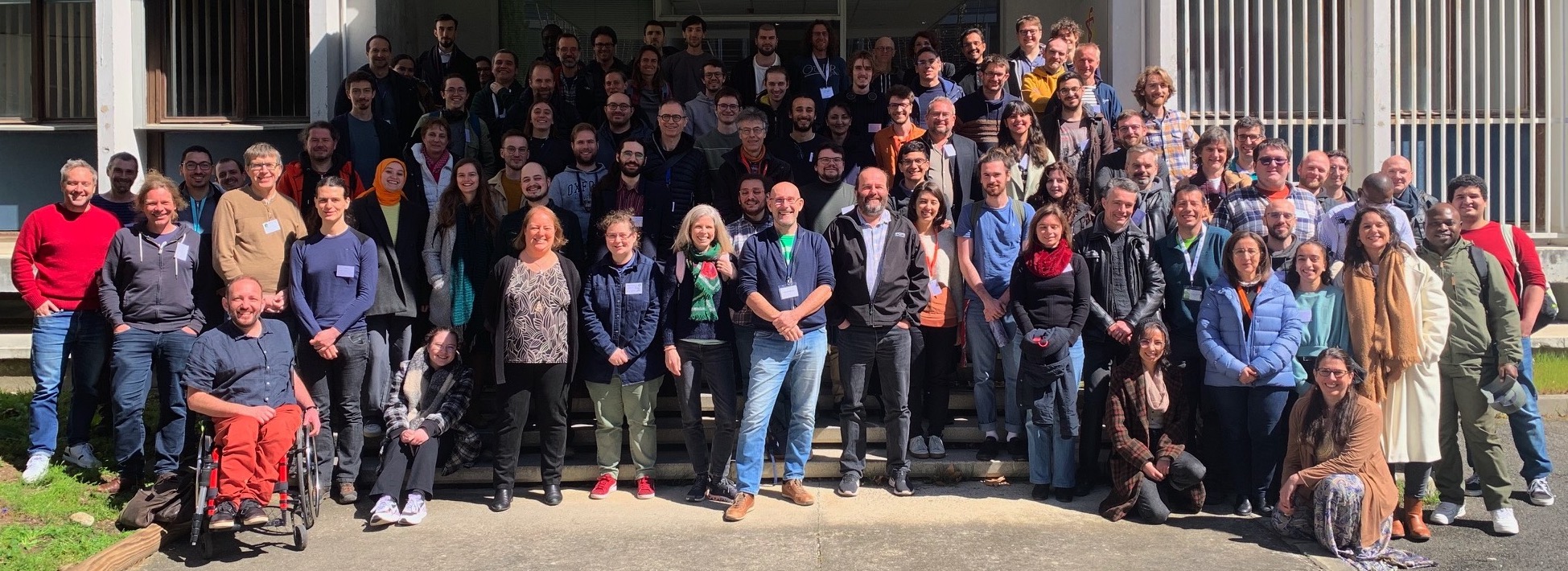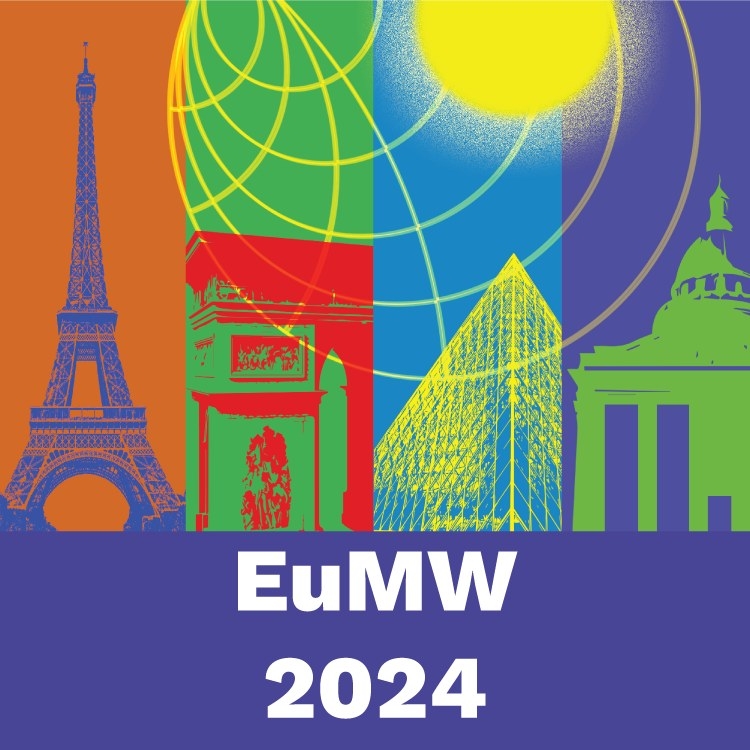#6 Portrait – Lamyae Hassini
Publié le

Science in Focus
The Poster Winners
for the MUST Project
#6
______________________
HASSINI
Lamyae
Laboratoire Bordelais de Recherche en Informatique (LaBRI)
Bordeaux
Advisors: Laurent Réveillère, Joachim Bruneau-Queyreix
During the annual PEPR Future Networks Days at Enseirb-MATMECA in Bordeaux, PhD students and postdoctoral researchers from the projects presented their research work to the community. A best poster competition was held, awarding one winner per targeted project. This series, « Science in Focus – The Poster Winners », aims to highlight the work of the winning doctoral students.
Discover the portrait n°5 of our « Science in Focus – The Poster Winners » series: Lamyae Hassini from MUST project
Academic and personal journey
I began my academic journey with two years of preparatory classes (PSI/PSI*) in Casablanca, Morocco, which provided me with a strong foundation in mathematics and physics. I then joined ENSEIRB-MATMECA in Bordeaux, France, where I specialized in telecommunications, studying subjects such as computer science, signal processing, networks and security, and the Internet of Things. During my time there, I completed three internships in computer science, two of which were at LaBRI (Laboratoire Bordelais de Recherche en Informatique), where I am currently pursuing my PhD. I also followed a dual « ingénieur-docteur » track, which gave me early exposure to research: I worked closely with a researcher on topics including federated learning and recommendation systems. I officially started my PhD at LaBRI in October, focusing on the design of efficient audit protocols for networks and distributed systems. My motivation to pursue research stems from a deep curiosity about complex systems and a strong desire to contribute to scientific knowledge, as well as a long-standing interest in teaching and academic life.
Thesis and research project
My research focuses on making modern digital systems—like cloud platforms, blockchain networks, and internet services—more trustworthy and secure. These systems are distributed, meaning they are made up of many independent computers (or « nodes ») working together. However, when one of these nodes fails—either due to technical problems, human mistakes, or even cyberattacks—it can affect the whole system, sometimes causing major service outages (like what happened with Facebook, Cloudflare, or Google). To deal with this, we need a way to monitor and verify that every part of the system is doing what it’s supposed to do. This process is called accountability—basically, making sure that when something goes wrong, we can detect it and find out who or what caused it. The system I’m working on is called LAMP, and it’s a new kind of auditing tool that uses Trusted Execution Environments (TEEs)—special secure parts of a computer processor—to safely check what’s happening inside each node. With this, we can catch problems early, reduce risks, and do it in a much more efficient and scalable way than older methods, which often slow down the system or require too many resources. This research contributes to the fields of distributed systems, cybersecurity, and systems engineering by proposing a general-purpose accountability framework that balances performance, security, and flexibility. It tackles open challenges like reducing auditing overhead, scaling to large systems, and maintaining privacy – all while ensuring strong guarantees of correctness and traceability. It also demonstrates how to use TEEs effectively for secure, decentralized coordination.
Societal Stakes:
As our daily lives increasingly depend on digital infrastructure—whether it’s online banking, social media, or cloud-based healthcare systems—the reliability of these services becomes critical. A failure or attack can affect millions of people or cause significant economic losses. By helping ensure that these systems are resilient, transparent, and trustworthy, this research supports a safer digital society. Moreover, improving the efficiency of these technologies also means lower energy consumption and better privacy protections, both of which are essential for sustainable and ethical tech development.
PEPR and you!
What the PEPR environment and the exchanges with the communities during the 2025 days have brought you?
The PEPR Réseaux du Futur annual days in Bordeaux were a great opportunity for me as a PhD student to step back from my daily work and see the bigger picture. Over the three days, I got to discover a wide range of projects tackling the challenges of tomorrow’s networks— from 6G technologies to IoT security and non-terrestrial networks. It was exciting (and honestly a bit humbling!) to see the level of innovation happening across the field. What I appreciated most was the chance to connect with other PhD students and researchers, especially during the first day’s project sessions and the poster presentation. It made me realize how much overlap there is between different research areas, even if we’re working on different layers or technologies. In my case, hearing about real-world security issues in the IoT workshop helped me think differently about how accountability mechanisms like the ones I’m developing might be applied or adapted in practice. It was also nice to feel part of a national effort—there’s something motivating about seeing your own work as part of a larger ecosystem with long-term impact. And the informal exchanges, whether during coffee breaks or over lunch, were just as valuable: lots of advice, encouragement, and new ideas.
Vision and future
What are your expectations for after your postdoc?
After my PhD, I hope to continue in academia. I’d like to pursue a career that combines research and teaching, ideally as a lecturer or researcher in a university or public research institute. Over the course of my thesis, I’ve realized how much I enjoy explaining complex ideas and working with students—so teaching is definitely something I want to be part of my future. At the same time, I want to keep deepening my research in distributed systems and security, and contribute to projects that have both scientific relevance and practical impact. I’m particularly interested in environments where I can collaborate across disciplines and stay connected to real-world challenges, while also helping train the next generation of engineers and researchers.
Finally, what would you say to future doctoral candidates?
I’d say: be curious, be patient, and don’t be afraid to ask for help. A PhD is a long journey, and it’s completely normal to feel lost or unsure at times. What matters most is staying engaged with your topic, surrounding yourself with supportive people, and remembering that you’re not expected to know everything from the start—research is about learning, exploring, and sometimes failing before things make sense. Also, try to make time for discussions outside your immediate field. Some of the best ideas (and moments of motivation) often come from unexpected conversations. And finally: take care of yourself. Research is important, but your well-being comes first. You’ll do better work if you’re balanced, rested, and not too hard on yourself. It’s a challenging but incredibly rewarding experience—if you stay open and persistent, you’ll grow a lot, both as a researcher and as a person.
Lamyae Hassini’s poster for MUST project
Plus d'actualités Actualité


